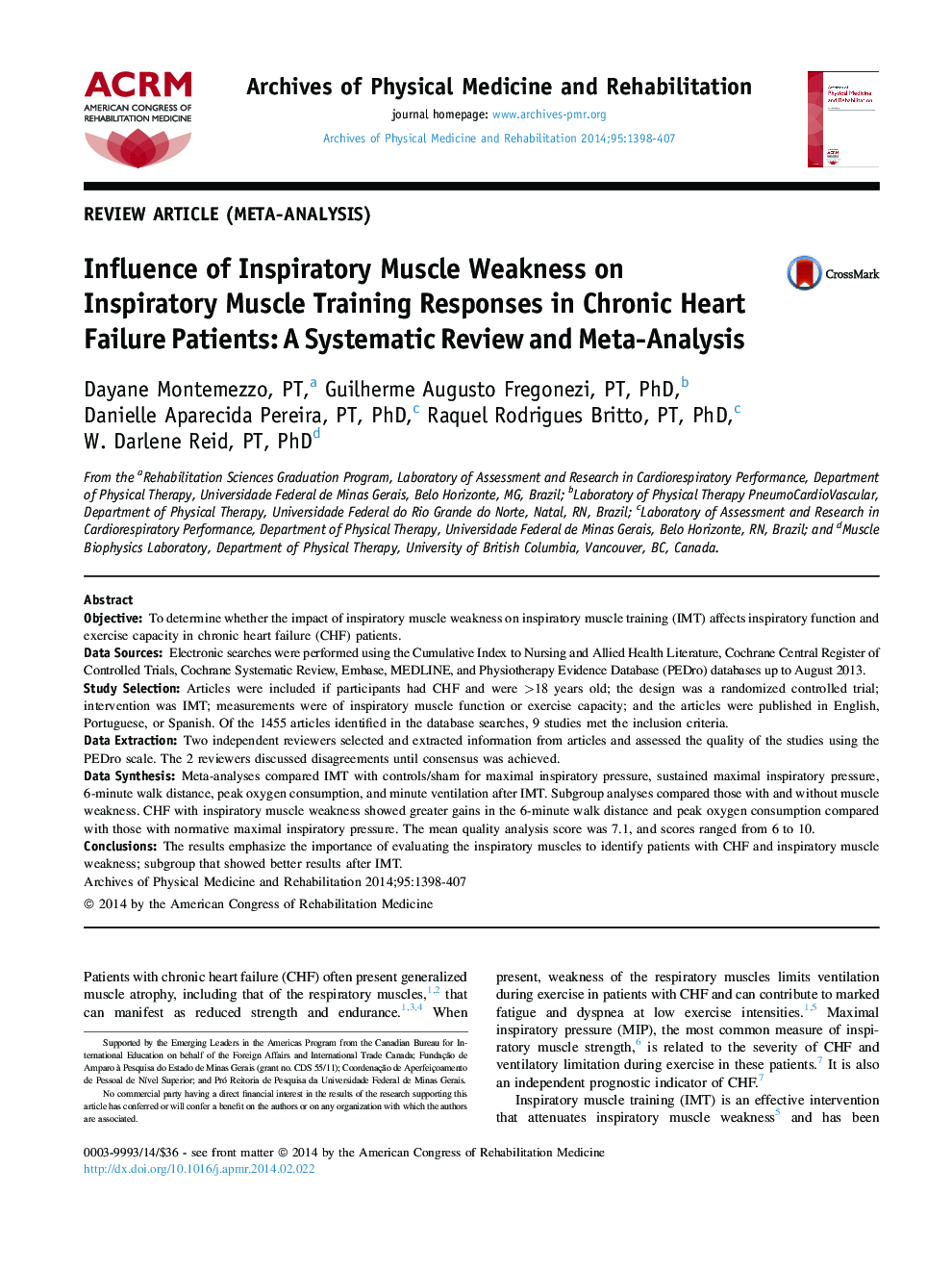| کد مقاله | کد نشریه | سال انتشار | مقاله انگلیسی | نسخه تمام متن |
|---|---|---|---|---|
| 3448733 | 1595695 | 2014 | 10 صفحه PDF | دانلود رایگان |
ObjectiveTo determine whether the impact of inspiratory muscle weakness on inspiratory muscle training (IMT) affects inspiratory function and exercise capacity in chronic heart failure (CHF) patients.Data SourcesElectronic searches were performed using the Cumulative Index to Nursing and Allied Health Literature, Cochrane Central Register of Controlled Trials, Cochrane Systematic Review, Embase, MEDLINE, and Physiotherapy Evidence Database (PEDro) databases up to August 2013.Study SelectionArticles were included if participants had CHF and were >18 years old; the design was a randomized controlled trial; intervention was IMT; measurements were of inspiratory muscle function or exercise capacity; and the articles were published in English, Portuguese, or Spanish. Of the 1455 articles identified in the database searches, 9 studies met the inclusion criteria.Data ExtractionTwo independent reviewers selected and extracted information from articles and assessed the quality of the studies using the PEDro scale. The 2 reviewers discussed disagreements until consensus was achieved.Data SynthesisMeta-analyses compared IMT with controls/sham for maximal inspiratory pressure, sustained maximal inspiratory pressure, 6-minute walk distance, peak oxygen consumption, and minute ventilation after IMT. Subgroup analyses compared those with and without muscle weakness. CHF with inspiratory muscle weakness showed greater gains in the 6-minute walk distance and peak oxygen consumption compared with those with normative maximal inspiratory pressure. The mean quality analysis score was 7.1, and scores ranged from 6 to 10.ConclusionsThe results emphasize the importance of evaluating the inspiratory muscles to identify patients with CHF and inspiratory muscle weakness; subgroup that showed better results after IMT.
Journal: Archives of Physical Medicine and Rehabilitation - Volume 95, Issue 7, July 2014, Pages 1398–1407
